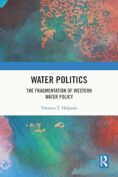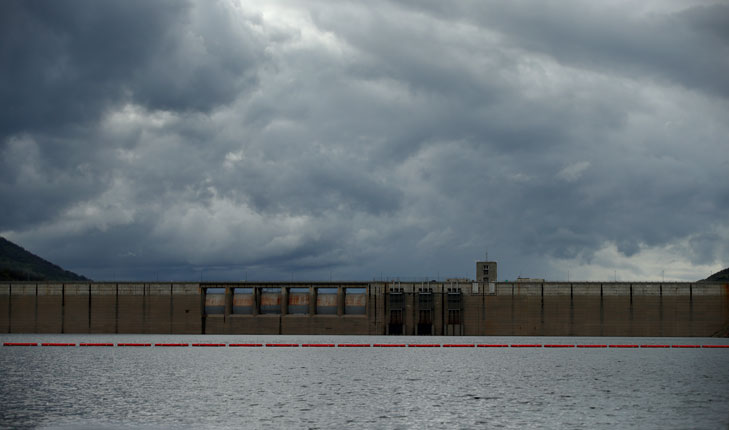Dr. Thomas Holyoke, professor of political science at Fresno State, was dissatisfied with the textbooks he was using for his class on water policy, so he decided to take matters into his own hands.
 “I decided to write my own book and it kind of became this larger project about the fragmentation of water policy,” Holyoke said.
“I decided to write my own book and it kind of became this larger project about the fragmentation of water policy,” Holyoke said.
Holyoke’s book, “Water Politics: The Fragmentation of Western Water Policy,” was released on Nov. 13.
The book is about the enactment of government policy regarding the use of water in the western United States and its eventual fragmentation, in part due to the rise of environmentalism as a political force.
“It quickly turned out that new environmental legislation was at odds with old policies,” Holyoke said, “and various stakeholder groups, from agriculture to urban to environmental, have all been competing fiercely with one another ever since.”
Holyoke said the main argument of the book is the U.S. does not have any kind of cohesive water policy that deals with the various problems we have.
“These policies are so inconsistent with each other that rather than having any kind of cohesive national water policy, instead we have this fragmented patchwork mess,” he said. “The only thing that everybody involved agrees about is that it doesn’t work.”
Along the way, Holyoke delves into water rights, instances of stolen water and other battles over water in different areas of the West, the Colorado River, the Central Valley Project and Native American Water rights.

Dr. Thomas Holyoke
While Holyoke’s primary areas of study are interest groups and lobbying, somewhere along the way he said he became interested in water policy in the West, mostly stemming from a project in which he created an oral history of water in the San Joaquin Valley.
“It’s become sort of a whole second field for me,” Holyoke said.
Holyoke recently became a co-assistant director of the Research and Education Division of the California Water Institute at Fresno State, where he helps further the institute’s mission of connecting academia to the water community to solve water management challenges.
Laura Ramos, interim director of the Research and Education Division of the California Water Institute, emphasized the significance of Fresno State’s efforts in developing the next generation of water professionals. She said it’s crucial for them to learn about the history of water policy and its fragmented landscape in order to change that outlook moving forward.
“I am very excited to read his book to learn how we can help California water stakeholders get out of their silos and work with others toward more collaborative water management efforts,” Ramos said.
Holyoke said he intends to use the book — his fourth overall but his first on water — in his water policy class. While written with the undergraduate student in mind, Holyoke said the book will appeal to anyone who wants a better understanding of how water is used in the western United States and the challenges that come with it.
(Story by Julissa Zavala)





